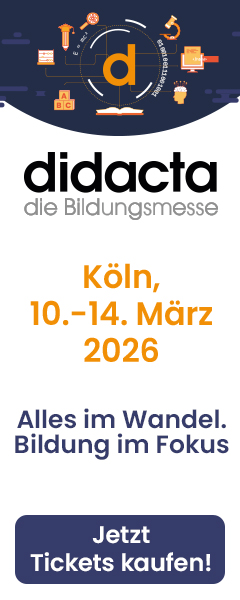Themen
European project
Prestigious Pan-European Program
Romsey (UK), July 2006 - Bourne Training has completed the development of a prestigious programme for EUROCONTROL, the European Organisation for the Safety of Air Navigation, to help educate air traffic staff and the general public about the impact of aviation on the environment. » MORE
New European Awards for Excellence
Berlin, July 2006 - To honour and stimulate high-quality Computer Support for Collaborative Learning (CSCL) research, design and development in Europe, the Kaleidoscope CSCL Special Interest Group has established three awards. » MORE
APOSDLE's "learn @ work" Approach
Graz (Austria), June 2006 - Lifelong Learning has become an essential ingredient for success within the knowledge society. The EU project APOSDLE will enhance knowledge worker productivity by providing learning support within the computational work environment. » MORE
eRM Services for Cultural Heritage
Madrid, June 2006 - eRMIONE, the eLearning Resource Management (eRM), Internet-based environment Market Validation project, funded by the European Commission within the framework of the eTEN programme, is organising an international workshop in Madrid on 11 July 2006 on the premises of Atos Origin. The main objective of eRMIONE is the validation of a series of services in the cultural heritage domain at a pan-European dimension. » MORE
The global eLearning provider for the automotive sector
Brussels, May 2006 - As the European umbrella membership organisation for the global Automotive Supply industry, CLEPA and its Training Department have coordinated European projects to evaluate, develop, and offer a sustainable eLearning solution to the Automotive Supply Industry: "Learn4Auto". » MORE
Know-how Pays Off...
Vienna, April 2006 - Imagine your home turns into a classroom and you meet your language teacher live online in a virtual classroom. Live online language learning by means of web or video conferencing software is the focus of the development project LANCELOT (LANguage Learning by CErtified Live Online Teachers), which started in 2005. LANCELOT aims to qualify language teachers in the use of state-of-the-art Internet communication technology. » MORE
eLearning for Lifelong Learning
Thessaloniki, April 2006 - The European Centre for the Development of Vocational Training (Cedefop) has published a preliminary study on the current state of eLearning in lifelong learning, with information gathered about Germany, Spain, Slovakia, Finland, and the United Kingdom. » MORE
German Development Cooperation provides answers
 Berlin, April 2006 - (by InWEnt/gtz/DED) Among all continents, Africa has the highest percentage of people living in absolute poverty and infected with HIV. Education and knowledge play a crucial role for its economic and social development. » MORE
Berlin, April 2006 - (by InWEnt/gtz/DED) Among all continents, Africa has the highest percentage of people living in absolute poverty and infected with HIV. Education and knowledge play a crucial role for its economic and social development. » MORE
Underway in Morocco
Munich/Pavia/Rabat, March 2006. Within the topical rubric of globalisation, European interests are being pursued beyond EU borders, as in the case of the EuropeAid Co-operation Office. Among the projects being sponsored by EuropAid are multi-media foreign language educational measures in nations with close proximity to the EU. » MORE
EESC to Adopt Key Opinion
Brussels, January 2006 - At the request of the Austrian Presidency, the EESC has drawn up an exploratory opinion on the road towards the knowledge-based society, which forms part of its work on the Lisbon Strategy. In its draft opinion, the EESC calls for a Common European Area of Knowledge based on clearly defined targets, benchmarks, timetables, as well as clear responsibilities. » MORE










